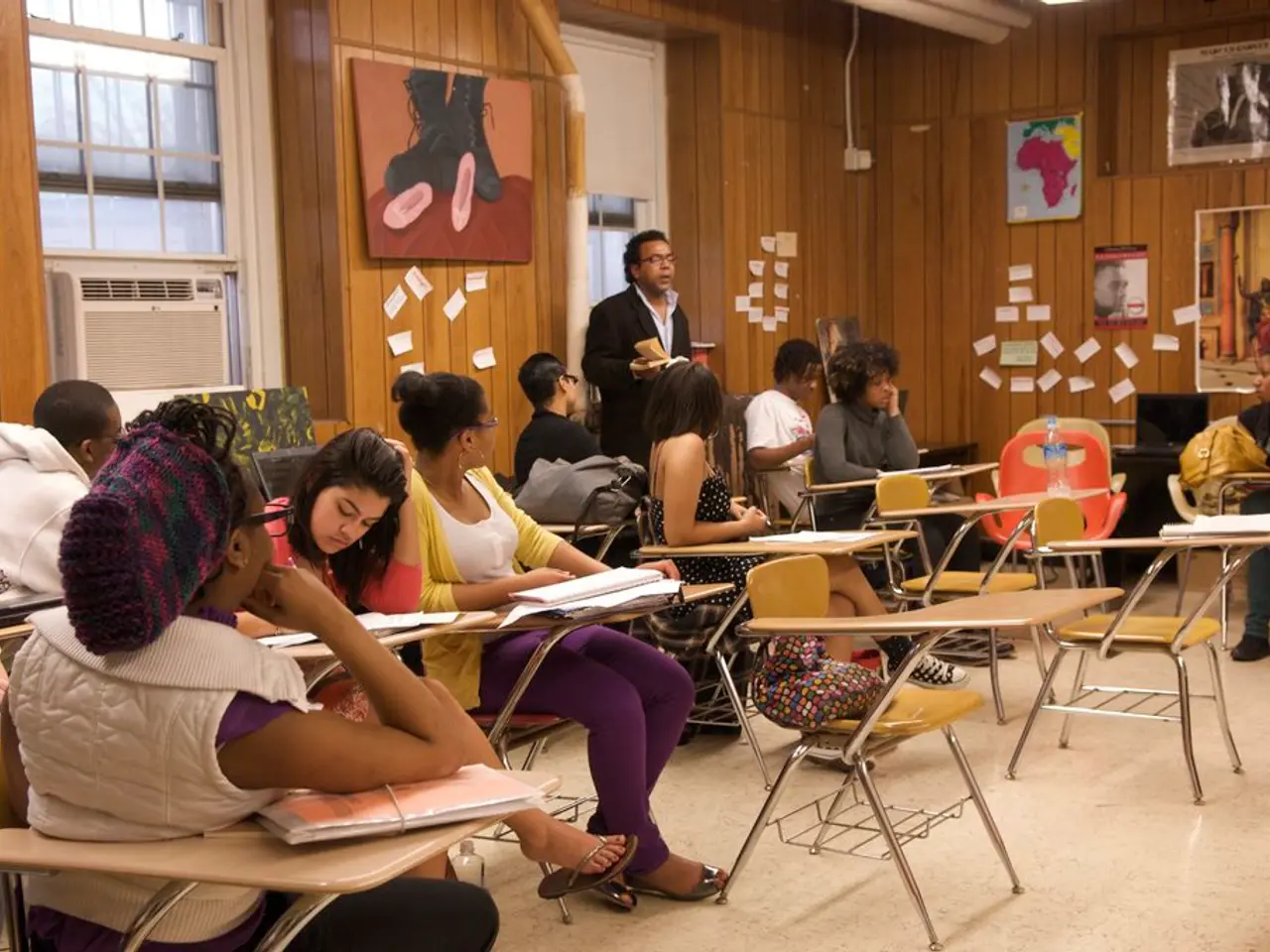Improved Spark of Achievement: Introducing Simpler Math Problems May Fuel Students' Drive to Succeed
In a groundbreaking study published in 2024, David Miele, program director of Applied Developmental & Educational Psychology at Boston College, and his colleagues investigated the impact of the remembered success effect on student motivation. This effect, as Miele explains, refers to the positive motivation gained when students recall previous successes in challenging tasks.
The study involved 570 third- and sixth-graders, who were presented with tasks that started or ended with easier questions. The researchers found that students who received these additional easier questions had a greater positive evaluation of the activity. Interestingly, the longer task, despite taking longer to complete, didn't feel longer for students.
This finding is significant, as it suggests that teachers can maintain positive student evaluations of challenging tasks without watering them down. Miele advises teachers to consider potential fatigue effects when planning follow-up activities or multiple activities, as some studies suggest that adding questions can still cause fatigue, even if students don't perceive it.
To get the desired effect, the easier questions should be placed at the beginning or end of the assignment. Miele believes that this strategy could potentially have big implications for how teachers motivate students through difficult tasks.
The study's findings can be effectively applied in the classroom by using retrieval practice and reflection, incorporating meaningful learning approaches, applying spaced and distributed practice, and providing formative feedback and practice tests. These strategies help students recall and articulate specific successes they have had with similar skills or topics, connect new content to what students already understand deeply, spread challenging content over time, and use assessments as opportunities for students to experience achievable success and identify areas of growth.
However, it's important to note that building in opportunities for success, such as easier math questions, can counteract the decrease in motivation, but may water down the content being taught. Miele is working on further studies to fine-tune how teachers can best use the remembered success effect to maintain academic rigor while boosting student motivation.
The remembered success effect is not a new concept, as it was famously demonstrated in an episode of Seinfeld, where George Costanza started leaving meetings or conversations early after telling a funny story. In the context of education, this effect can be harnessed to motivate students and foster a positive learning environment.
More research is needed to better understand how and when the remembered success effect can be best utilized. However, with the findings from Miele's study, teachers now have a promising strategy to boost student motivation and engagement in the classroom.
- Teachers can harness the remembered success effect to motivate students by incorporating easier questions at the beginning or end of assignments, as suggested by David Miele's study.
- This strategy, which includes retrieval practice, reflection, meaningful learning approaches, spaced and distributed practice, and formative feedback, can help students recall and articulate their successes, connect new content to what they already understand, and spread challenging content over time.
- By using these strategies, educators can create a positive learning environment that fosters student engagement and achievable success, while potentially counteracting any decreases in motivation.
- Further research is needed to determine the optimal use of the remembered success effect to maintain academic rigor while continuing to boost student motivation.




